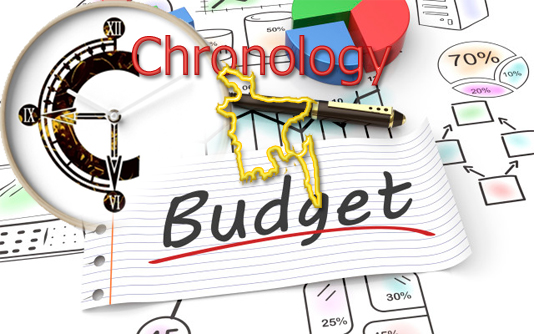The purpose of any state ought to be, first, to offer public services and order that provides security and scope to citizens to pursue a life that they have reasons to cherish; and in the next place, to implant institutions that compel the state to operate with utmost accountability and transparency in carrying out its responsibilities. Of course, while the latter concern is related with the nature of governance in any particular polity, the former one is systematically related to the capacities of power deploying institutions within a state to play its role of effectively in meeting the economic and security aspirations of the people.
As a result, power-deploying institutions, which are often noted to be central to the idea of the state, has a principal duty to mobilise resources so that it can provide public goods and services that are essential to support the socio-economic order within any given polity. This, inherently, makes an analysis of national budgets extremely important. Moreover, viewing from that lens, the performance of Bangladesh over the recent years has been impressive, even though there is ample scope for improvements.
First, the Finance Minister has recently stated that the national budget for fiscal year (FY) 2015-16 should be approximately Taka 2.95 trillion. Hence, if this estimate is compared to the revised budget estimates for FY15, it marks an expenditure growth of approximately 22.6%. Furthermore, since the average expenditure growth has been around 16.8% between FY10 and FY14, often going beyond 25% for some years in between (Table-1), the mentioned objective remains possible but it requires the national exchequer to explore some low-hanging fruits so that revenue mobilisation effort pays much more dividend.
Second, even though Bangladesh has experienced a notable growth in the absolute size of Annual Development Programme (ADP) and total expenditure, its relative size as a percentage of gross domestic product (GDP) remains modest and it compares unfavourably with countries from both developed world and South Asia. To be more specific, for developed countries like Germany and the UK, total expenditure as a percentage of GDP is roughly 40% or more (Figure-1). For countries like India and Malaysia, it is approximately 26%.
Unfortunately, for Bangladesh total expenditure as a percentage of GDP stands at 15% in FY15, which is marginally better than what it was in FY10. This underscores an urgent need to enhance the size of the national budget as a share of GDP under the 7th Five Year Plan period.
In fact, under the 7th Five Year Plan, the government’s aim has been to increase total expenditure as a share of GDP to approximately 17% in FY16 and to 20% by FY21. This, however, necessitates that policymakers pay attention to some specific areas of revenue mobilisation, where Bangladesh has traditionally underperformed – namely its ability to collect income taxes.
The focus on income tax to provide the necessary boost to revenue mobilisation effort is important because this has been historically a weak zone for Bangladesh. To be accurate, Household Expenditure Survey 2010 points out that top ten per cent households of the income distribution generate more than 35 per cent of the country’s income. However, the number of individuals who have undertaken income tax assessment is just above 1.0 million.
Furthermore, even when we compare our capacity to generate income tax with India, we can notice a weaker performance given India’s income tax as a percentage of GDP stands at more than 5.0% of GDP in comparison to 3.3% for Bangladesh. Additionally, if we compare the situation to those of countries like Malaysia, the picture is even bleaker (See Figure-2).
Thus, what can be pragmatically inferred from this comparison is that policy makers have failed to mitigate the problem of both tax avoidance and tax evasion adequately. In this respect, policy makers must formulate effective instruments to ensure wider tax coverage so that we can minimize the problem of tax evasion in the economy.
An important avenue for exploration is to improve the performance of payroll taxes. As shown in Fugure-3, pay roll tax as a percentage of total income taxes in less than 4.0% in Bangladesh, while they are more than 80% in countries like UK.
Hence, when these broad issues are taken into consideration, it is evident that Bangladesh can improve its revenue mobilisation capacity. This, to an extent, requires some major tax administrative reforms, especially to improve our ability to generate income taxes. Some reforms that can be initiated under the next fiscal year and possibly under the Seventh Five Year Plan time interval are listed below:
* Broadening of the taxpayers’ base;
* Broadening of the tax revenue sources;
* Focusing on income from service providers and self-employed (who are difficult to tax);
* Treating all sources of income equally for the tax purpose without discrimination for the households;
* Effective e-filing of income tax returns; and
* Expansion of withholding mechanism and close monitoring of the process.
On the whole, while Bangladesh has progressed noticeably between FY10 and FY15 in increasing the size of the budget, it is apparent that demand for more and better public services will increase with growing income. This inevitably means that meeting such expectations will remain a challenging endeavour for any policymaker. However, as discussed in the preceding section, there is sufficient scope for the state to enhance the effectiveness of its power deploying institutions to mobilise resources and cater to the aspirations of its citizens.











